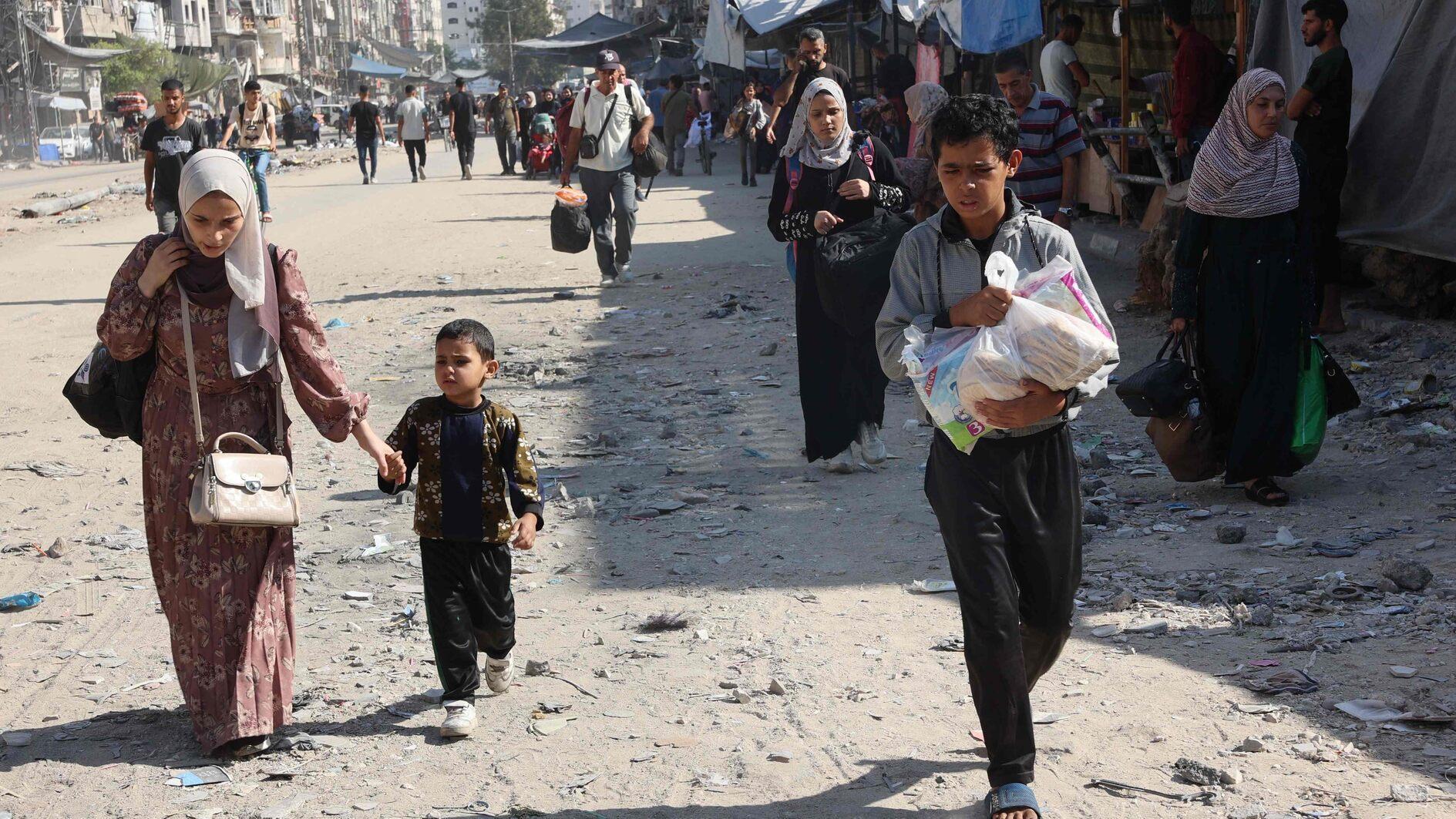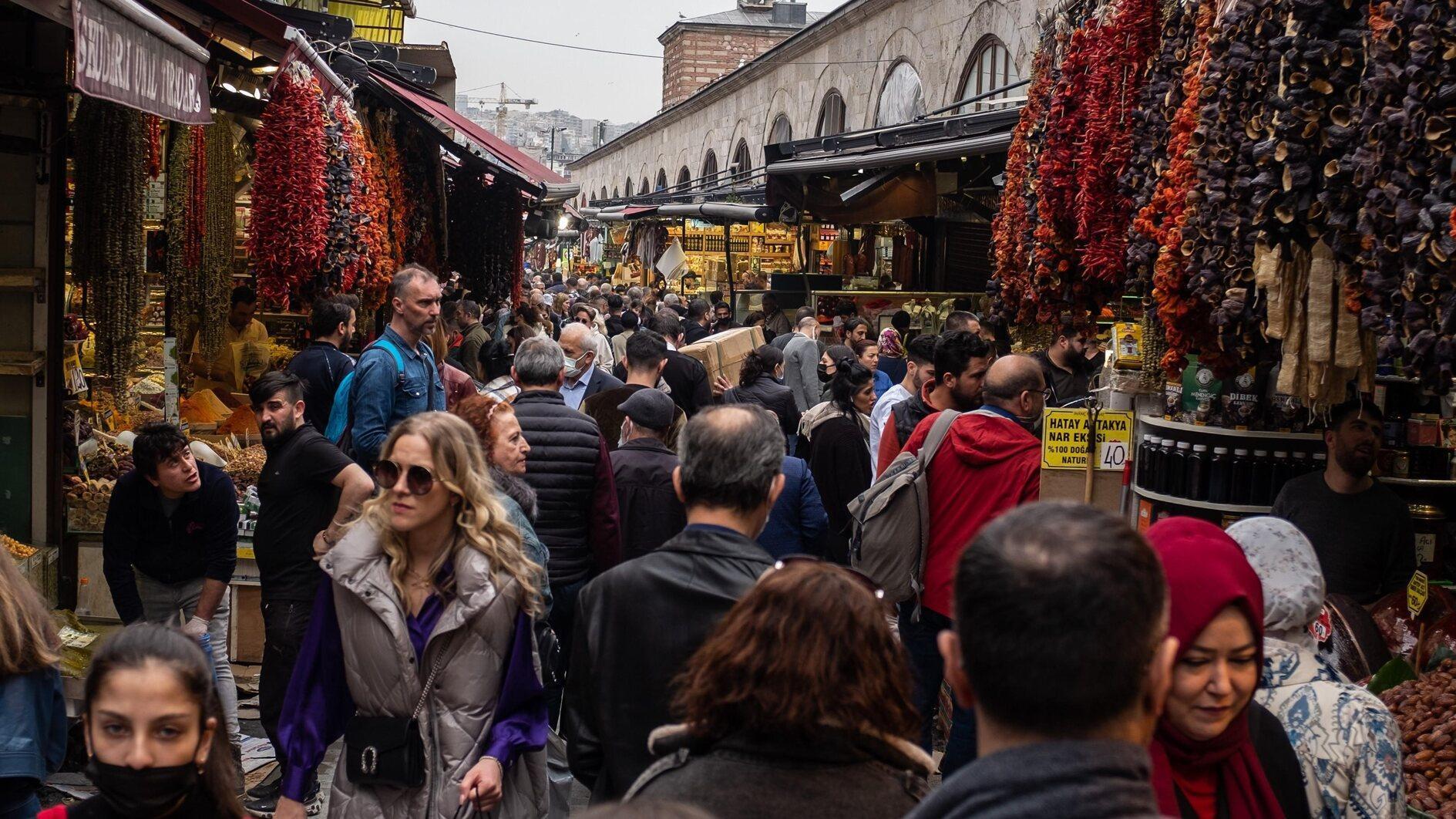Israel ‘seals off’ northern Gaza amid forced transfers: UN
GAZA STRIP

The United Nations Human Rights Office has warned that Israel is “effectively sealing off northern Gaza” and may be carrying out the “large-scale forced transfer of the civilian population,” which it said would amount to a war crime.
The Israeli military has been carrying out an intense offensive in the north of the Palestinian enclave for more than a week. It has ordered all civilians north of Gaza City to leave and has blocked all food from entering northern Gaza since the beginning of the month, according to the World Food Program.
In a written statement, the office said that Israel’s roadblocks were effectively sealing off northern Gaza, “where Israeli forces have trapped tens of thousands of Palestinians, including civilians, in their homes and shelters with no access to food or other life-sustaining necessities.”
“In the shadow of the escalation of hostilities across the Middle East, the Israeli military appears to be cutting off Gaza’s north completely from the rest of the Gaza Strip and conducting hostilities with absolute disregard for the lives and security of Palestinian civilians,” the statement said.
The office said that the separation of northern Gaza raises further concerns that Israel does not intend to allow civilians to return to their homes, and “the repeated calls for all Palestinians to leave northern Gaza raise grave concerns of large-scale forced transfer of the civilian population.”
The “forcible transfer of the population of northern Gaza would amount to a war crime and may amount to other atrocity crimes,” it added.
Several media reports on Tuesday noted that families were still trapped in their homes and shelters in the region. According to witnesses, bodies covered the streets across Jabalia refugee camp, with Israeli forces preventing medical teams from reaching the area.
The head of the U.N. agency for Palestinian refugees also expressed concern, saying that the deliberate denial of critical assistance is used as "a tactic by the Israeli authorities to force people to flee or die of hunger.”
"Civilians are given no choice but to either leave or starve," underlined Philippe Lazzarini, stressing that under international humanitarian law, people cannot be displaced by force and civilians should be protected at all times.
400,000 trapped in Gaza’s north
Lazzarini added that the Israeli military operation in northern Gaza has left at least 400,000 Palestinians trapped in the area.
A renowned rights group has reported the same number, noting that 400,000 Palestinians in the northern Gaza Strip are facing the threat of death from starvation amid the ongoing Israeli siege
In a statement, the Euro-Mediterranean Human Rights Monitor (Euro-Med) said that many victims and injured people are still stuck in the streets or homes, as they cannot be transported to hospitals under the Israeli ban of ambulances to move in Jabalia.
"Israel’s use of starvation as a lethal weapon and its imposition of living conditions that are meant to truly destroy the Palestinian population illustrate its blatant intent to continue carrying out the genocide," Euro-Med said.
Israeli Prime Minister Benjamin Netanyahu is reportedly examining a plan to seal off humanitarian aid to northern Gaza in an attempt to starve out Hamas militants.
The plan proposed to Netanyahu and the Israeli parliament by a group of retired generals would escalate the pressure, giving Palestinians a week to leave the northern third of the Gaza Strip, including Gaza City, before declaring it a closed military zone.
Those who remain would be considered combatants — meaning military regulations would allow troops to kill them — and denied food, water, medicine and fuel.
The plan calls for Israel to maintain control over the north for an indefinite period to attempt to create a new administration without Hamas, splitting the Gaza Strip in two.
There has been no decision by the government to fully carry out the so-called “Generals’ Plan,” and it is unclear how strongly it's being considered.
















